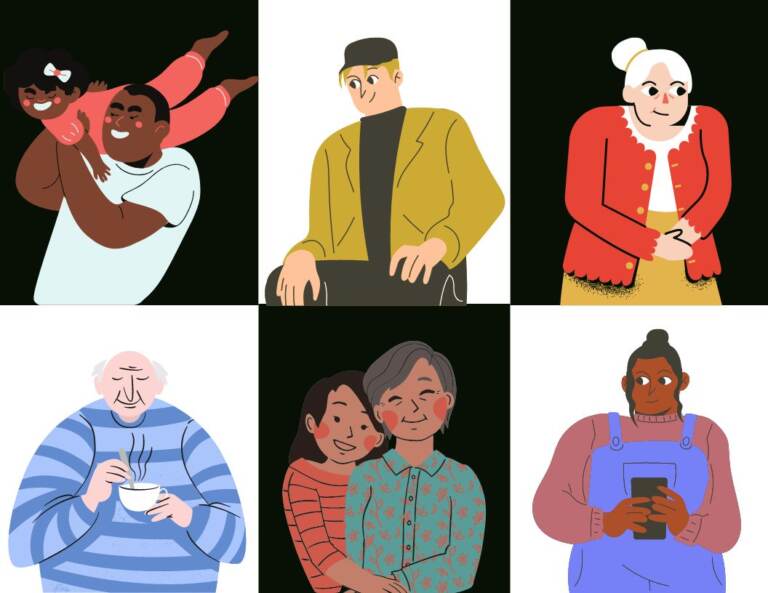Should we stop labeling generations?
Goal-oriented baby boomers, slacker Gen Xers, narcissistic Millennials, hyper-sensitive Gen Zers...why do we name and characterize large groups of people into generations?
Listen 48:59
(WHYY/Paige Murray-Bessler)
Goal-oriented Baby boomers, slacker Gen Xers, narcissistic Millennials, hyper-sensitive Gen Zers…naming and characterizing generations is a relatively new phenomenon. It started in the late 1800s, but since then, academics, marketers and the public seem to love coming up with names and character traits for large groups of people born between certain years. But is there any merit to thinking these groups of people share common traits because of the historical or social forces they lived through? This hour, should we dump generation labels? And how does history and culture shape our identity and our characteristics? Our guests are PHILIP COHEN, a professor of sociology at the University of Maryland and JEAN TWENGE, a psychologist and author of the book, iGen.
Guests
Philip Cohen, professor of sociology and a demographer at the University of Maryland. He’s the author of the textbook, The Family: Diversity, Inequality, and Social Change. @familyunequal
Jean Twenge, professor of psychology at San Diego State University and the author of iGen: Why Today’s Super-Connected Kids Are Growing Up Less Rebellious, More Tolerant, Less Happy–and Completely Unprepared for Adulthood–and What That Means for the Rest of Us. @jean_twenge
Recommended reading
The Washington Post, Opinion: Generation labels mean nothing. It’s time to retire them.
The New Yorker, It’s Time to Stop Talking About “Generations” –
The San Diego Union-Tribune, Opinion: Why Gen Z — or iGen — is experiencing much higher rates of mental health issues

Subscribe for more Radio Times
WHYY is your source for fact-based, in-depth journalism and information. As a nonprofit organization, we rely on financial support from readers like you. Please give today.




